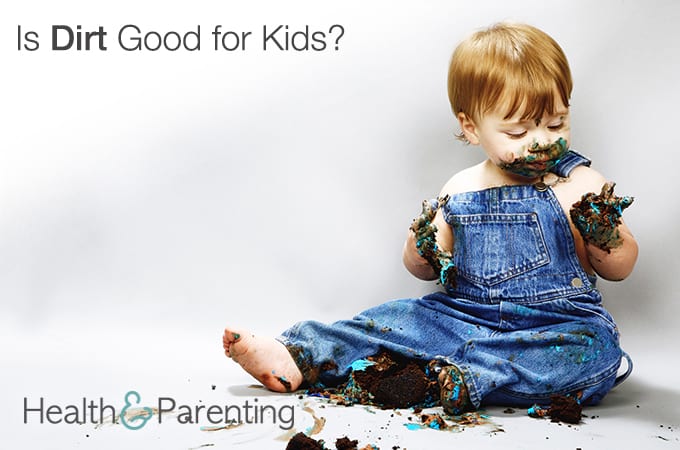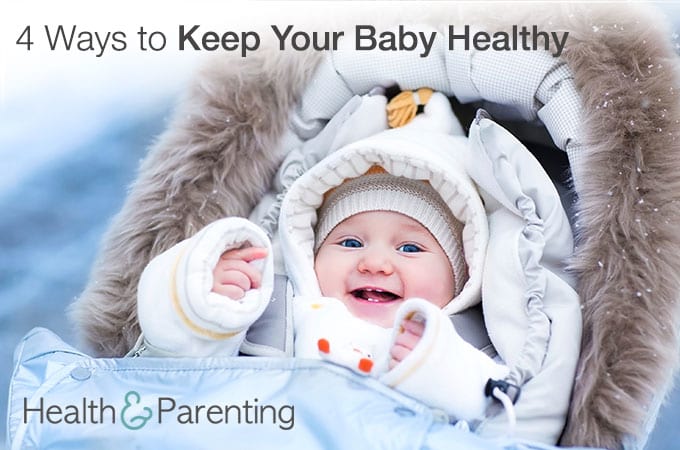If you’re trying to keep your baby away from germs, you are probably fighting a losing battle. Babies love dirt and mess and pretty much everything they shouldn’t really be touching. They will happily cuddle up with their incredibly snotty best friend, gleefully play with puddles of mud and are more than happy giving the dog a kiss (right after he’s licked his, erm, self). Yep, babies aren’t fussy, they’ll touch anything. So, how can you keep your baby away from harmful germs and, in fact, should you?
Is dirt good for kids?
Many parents try to keep their kids away from dirt because they believe it will keep them healthy, but in fact, many scientists disagree. Researchers now believe that early exposure to germs can actually reduce the risk of allergies and asthma in later life. It is thought that exposure to bacteria, viruses and parasites is important for the healthy development of the immune system.
If you try to keep your home as sterile as possible, encourage regular and thorough hand washing and carry hand sanitizer with you wherever you go, you may actually be depriving your child of the opportunity to develop a strong immune system. Without exposure to germs in the environment, our bodies are unable to build up the immunities we may need in later life. This combined with the overuse of antibiotics may cause serious problems for this next generation in later life.
Finding the balance
So, a clean sterile environment could be bad for your kids in the future. But a filthy, germ-filled environment might not do them any favors either. How do you find the balance and ensure your child is exposed to the right amount of germs? Well, there isn’t a quota for the right amount or even right type of germs. It all comes down to common sense. Of course, you should wash your child’s hands after they visit the toilet, but it’s probably ok for them to play in the mud in the garden every now and again.
How do you feel about germs? Are you a clean freak or do you go with the flow when it comes to muddy hands?
Written by Fiona (@Fiona_Peacock), mother, writer and lover of all things baby related.
This information is not intended to replace the advice of a trained medical doctor. Health & Parenting Ltd disclaims any liability for the decisions you make based on this information, which is provided to you on a general information basis only and not as a substitute for personalized medical advice. All contents copyright © Health & Parenting Ltd 2016. All rights reserved.











